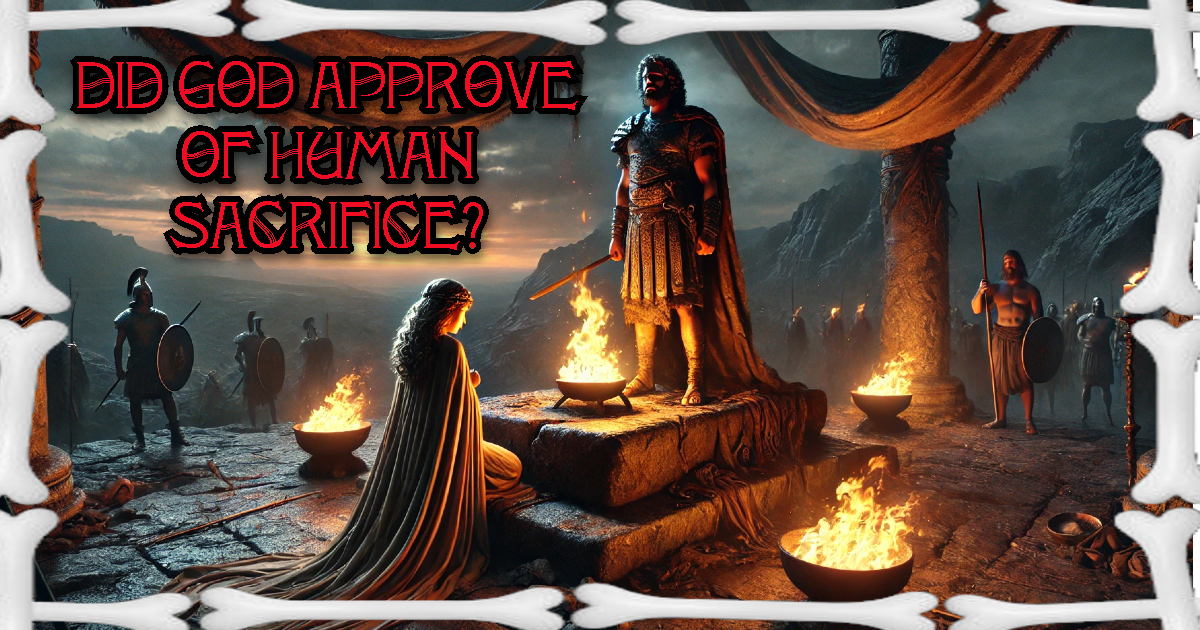The idea that the God of the Bible could have ever approved of human sacrifice is both shocking and unsettling to many believers. The conventional understanding among Christians and theists is that human sacrifice is explicitly condemned throughout Scripture. However, a closer, secular investigation of the earliest biblical texts and ancient Near Eastern manuscripts suggests a more complex narrative. This exploration is not an attempt to undermine faith but to shed light on historical contexts that may challenge traditional interpretations.
The Story of Abraham and Isaac (Genesis 22)
Perhaps the most famous and perplexing biblical account related to human sacrifice is the story of Abraham’s near-sacrifice of his son Isaac. In Genesis 22, God commands Abraham to offer Isaac as a burnt offering. Abraham complies without question, and only at the last moment does an angel intervene, stopping the act and providing a ram as a substitute.
From a theological perspective, this story is often interpreted as a test of faith. However, secular scholars argue that the narrative may have roots in an earlier tradition where human sacrifice was not only acceptable but perhaps even practiced. The late intervention could signify an evolving moral stance, transitioning from actual human sacrifice to symbolic offerings.
Jephthah’s Vow (Judges 11:29-40)
Another disturbing account is that of Jephthah, a judge of Israel, who vows to God that he will sacrifice the first thing that comes out of his house if he is granted victory in battle. Tragically, his daughter greets him upon his return, and he fulfills his vow by sacrificing her.
What’s particularly striking is the absence of divine disapproval in this story. There is no angelic intervention, no prophetic condemnation—only a somber narrative that ends with Jephthah’s daughter mourning her fate. Secular analysis suggests that this reflects an ancient cultural norm where such vows and their fulfillment were taken seriously, even when they involved human life.
The Case of Molech Worship (Leviticus 18:21; Jeremiah 7:31)
The Bible explicitly condemns child sacrifice to the god Molech, labeling it as detestable. However, the very need for these prohibitions implies that such practices were prevalent among the Israelites or their neighbors. Some scholars argue that early Israelite religion may not have been entirely monolithic and that practices like child sacrifice could have been part of certain cultic rituals before being outlawed by later religious reforms.
Archaeological findings, such as the Tophet of Carthage, suggest that child sacrifice was a real practice in the ancient Near East, lending credence to the idea that early Israelite religion was influenced by surrounding cultures. The biblical prohibitions could thus represent a theological evolution rather than an original stance.
The Sacrificial System and Jesus’ Crucifixion
Christian theology often frames the crucifixion of Jesus as the ultimate sacrifice for humanity’s sins. Some critics argue that this concept parallels the notion of human sacrifice, albeit in a different form. Jesus, considered both divine and human, is presented as a sacrificial offering to atone for the sins of the world.
While Christians view this as a unique, once-for-all event, secular perspectives might interpret it as a continuation of sacrificial themes deeply embedded in religious traditions. The idea that divine wrath requires appeasement through blood sacrifice echoes older, pre-biblical rituals found across various cultures.
Conclusion
The question, “Did God approve of human sacrifice?” does not yield a simple answer. The evidence from ancient texts suggests that human sacrifice was a part of the cultural and religious landscape in which the Bible was written. Some narratives appear to reflect a transition from acceptance to prohibition, indicating an evolving theological and moral framework.
This exploration encourages readers to grapple with the complexities of ancient texts, understanding that religious doctrines often develop over time, influenced by historical and cultural contexts. Whether one views these findings as challenging or enriching their faith, the pursuit of truth remains a worthy endeavor.
Sources:
- The Hebrew Bible (Genesis, Judges, Leviticus, Jeremiah)
- “The Bible Unearthed” by Israel Finkelstein and Neil Asher Silberman
- “The Origins of Biblical Monotheism” by Mark S. Smith
- “Ancient Near Eastern Texts Relating to the Old Testament” edited by James B. Pritchard
- Archaeological findings from the Tophet of Carthage
- Various scholarly articles on ancient Israelite religion and Near Eastern cultic practices

